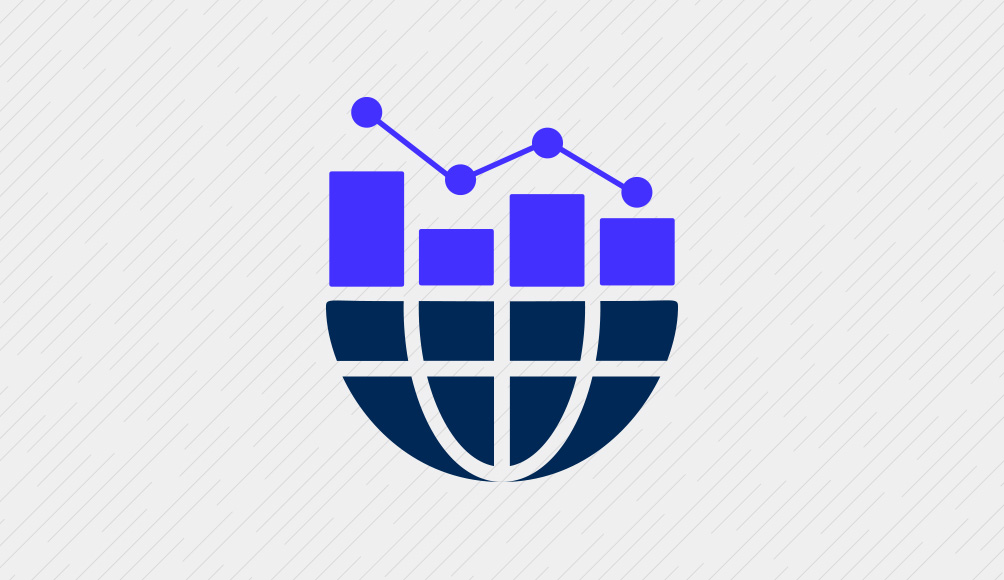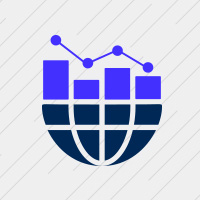
Rich Fox
CDO
Qdoba
Qdoba is a leading fast-casual Mexican chain with more than 700 restaurants in the US and Canada.

Sebastian Stoessel
Head of Data & Analytics
Audi
Audi of America is the US representation of AUDI AG, the German premium car manufacturer that employs more than 90,000 people worldwide.

New York Community Member
CDO
Business Services Company
Global technology company that provides commerce solutions in the areas of ecommerce, shipping, mailing and financial services.

Detroit Community Member
SVP & CDO
Financial Services Company
Texas-based home mortgage originator and servicer established in 2013.
June 2020
Introduction
Data Leaders Executing a Pandemic Plan
When COVID-19 began spreading around the world in early 2020, it unleashed an unprecedented wave of business disruption along with it. Entire cities and countries were shut down indefinitely. Businesses were forced to rethink products, processes, supply chains, and even their business models.
Evanta communities comprised of C-level executives from around the world began gathering virtually to share ideas and collaborate on responding, coping and leading their teams through the pandemic crisis. After more than 60 gatherings, four leaders are sharing takeaways for the larger CDAO community on what actions they took to secure their businesses and how data teams can arm companies with good information.
The CDAO Pandemic Response
During these uncertain times, CDAOs and their direct reports are at the center of their company's decision-making process. They are working to collect, distribute and arm their company with reliable information to navigate the pandemic.
In these Evanta virtual gatherings, participants discussed the resilience of their organizations in managing the crisis and implementing business continuity plans. Three themes emerged from those discussions among CDAOs.
Enabling the Remote Workforce
Like all C-suite executives, CDAOs supported the immediate and broad scaling up of their remote workforces in response to the pandemic.
- Embracing a Central Role
Data and analytics are central to decisions around next steps and business continuity. Due to their critical role in decision making, many CDAOs have seen their workload and demands increase during the pandemic response.
- Establishing Data at the Core
People are looking to data and analytics experts for information needs across the business, making data teams almost a hub of information for the organization.
A positive outcome is that data has never been examined so closely, creating a great opportunity for data and analytics teams. One CDAO noted that data and design thinking are in a high demand for helping with recovery plans, positioning her team to make big contributions to the business.
1. Enabling the Remote Workforce
CDAOs supported the rapid scaling up of remote workforces in response to the pandemic.
Most CDAOs reported a smooth transition to remote work. Even though there were worrisome moments about taxing their infrastructure, for most, the technology was not a problem.
To successfully share information, remote access capabilities were required. While the data and analytics teams were well-equipped, some other departments or clients were not. A few CDAOs say they’ve changed their policies around VPN connection and encryption to keep their internal databases secure.
Moving to the cloud created a lot of stability, resiliency and flexibility for CDAOs’ organizations.
CDAOs are primarily focused on providing the data to help internal and external clients solve problems and predict what might happen next for their businesses.
The severity of the pandemic’s operational impact varies from organization to organization, but CDAOs agree their roles as data leaders have become central to the C-Suite. Many data leaders say their organizations have identified new short-term needs that are taking precedence over long-term goals.
Community Voices
Being a restaurant company, we've been significantly impacted. All decisions are being made with analytics. It's about what actionable insights we can provide to the business today though we are still following our roadmap for data transformation. We're now determining – what does a ramp up look like, what do operations and supply chain have to do? Analytics is at every step of managing our business.
Rich Fox
Southern California CDAO Community
Our responsibility is to instill data and analytics into the decision-making process. The pandemic impacts our large network of suppliers and dealerships. Data is valuable more than ever in this situation. Audi had already been driving forward the idea to collaborate remotely especially in the digital space across teams and locations. There was minimum disruption from remote work in supporting corporate business functions.
Sebastian Stoessel
Washington, DC CDAO Community
We sent workers home that could work remotely and stopped all client interactions. We also really care about safety and enabling productivity for workers who need to be on site. It’s a new reality. We have had experience in the past with business disruptions, so we were somewhat prepared to work remotely for a period of time.
Business Services CDAO
New York City CDAO Community
We were very prepared for working from home. We took care of the IT items first. As D&A leader, the positive outcome is every decision maker came to me and asked for data. The priorities got shifted. How do we help customers, how do we manage finance? We must reorganize our existing resources.
Financial Services SVP & CDAO
Detroit CDAO Community
2. Embracing a Central Role
Data is central to decisions around business continuity, and CDAOs have seen their workloads increase.
CDAOs reported that people are looking to data and analytics experts for all types of business information needs. Their job in the short term is to stay close to the business and be as agile and quick in their responses as possible.
Data leaders are generally providing information to meet the near-term needs of the business, such as plans to reopen stores, restart supply chains or return to office locations.
A few leaders have been tasked with creating new data mapping systems to provide guidance on day-to-day business operations.
Many CDAOs are faced with how to efficiently operate with budget and expense restrictions and must protect future initiatives by demonstrating the value they provide.
To help businesses move forward, CDAOs can look to countries who are transitioning back to normal, such as China and Italy, but there is still too much uncertainty to have confidence in the data. One CDAO explained that businesses are trying to apply data science to optimize logistics and create efficiencies, making the data leaders crucial in helping with rebuilding activities.
Community Voices
The goal is to help the business understand performance so we created new data visualizations with geography and maps. We've been mapping all 700 stores by sales growth for a day or week and then layering multiple dimensions like real estate density, state reopening dates, and dining reopening dates to further understand what business drivers are important and are leading the turnaround.
Rich Fox
Southern California CDAO Community
The organization is very focused on essential functions. In leading data efforts, we must protect our future-oriented initiatives to stay ahead of the curve when things go back to normal. We are helping dealers to sell cars online now – a pilot that was fast-tracked. We are adapting with initiatives such as ‘Audi at Your Door’ to maintain the level of customer service that we have always delivered.
Sebastian Stoessel
Washington, DC CDAO Community
We are not only analytics leaders, but leaders for the company. We are taking a three-fold approach for the new normal: how to help clients, how to help the business make better decisions, and how to help the team. CDAOs need to be agile and provide analytics at speed to help clients and the business.
Business Services CDAO
New York City CDAO Community
Regulations have changed how we do business. One department was being impacted and overworked. We helped to distribute the workload. This will change how we look at our business operations and forecasting across the entire nation. Now we are working on, how long this is going to last? How quickly will the market re-emerge?
Financial Services SVP & CDAO
Detroit CDAO Community

3. Establishing Data at the Core
Across the organization, people are looking to data teams for their business information needs.
CDAOs are working across all parts of the business to provide analytics that support the decision-making process. They are trying to determine what to keep – and what to drop – from the new ways they have been doing things during the crisis.
CDAOs see the opportunity to take agility and innovation to a new level, and they are finding ways to get answers quickly.
Data leaders and their teams report that they are working much more closely with the business to help find answers and solutions.
CDAOs are looking to adapt policies, training and technology to a post-pandemic business world.
Already innovative, CDAOs think the crisis has rapidly introduced new ways of working and operating. They are staying close to the business to understand where they can add value. As one CDAO said, “It's about taking care of the crisis today, but not losing sight of the long term.”
Community Voices
Data has become more important, and people want actionable insights as fast as possible. The days of PowerPoints and nice presentation decks are gone. We are finding new, innovative ways to look at business KPIs. We are focused on what is important – one of our 20-page reports was reduced to 3 pages. People want answers and to understand their business.
Rich Fox
Southern California CDAO Community
We are the brain of the organization, ensuring everyone is enabled to make proper decisions supported by data. We operate like a hub of information reaching into every department. Some departments are more self-sufficient than others when it comes to data practices; others are striving to be. It is part of our corporate Data Strategy to grow, nurture and distribute those capabilities equally across the enterprise.
Sebastian Stoessel
Washington, DC CDAO Community
For any business that has logistics in it, it’s all about efficiencies. How can we apply data science to create optimization? We’ve been investing in the area heavily. We have teams focused on new business opportunities and efficiencies. We are leveraging data to better understand clients. We are doubling down on forward-looking strategies.
Business Services CDAO
New York City CDAO Community
Data has never been so important for decision making. We must provide the right data to the right people at the right time. We had 10 top priorities, but now everyone is just focused on the top 3 initiatives. It’s a great time to collaborate with the business. Data and analytics must understand how a business leader thinks.
Financial Services SVP & CDAO
Detroit CDAO Community
Conclusion
Overall, data and analytics leaders predict their roles will become even more vital to their organizations going forward, both in decision-making and developing long-term strategy. They believe a shift is happening – previously, data leaders infused information into their organizations. Now, they predict that information will be sought out rather than pushed out.
CDAOs also say that this is the time to make it known how data and analytics teams are benefiting their companies. In these uncertain times, people are relying on their teams to enable smart decision making.
It’s a tremendous opportunity not only to educate everyone about data – but also to change the culture around data-driven decision making. As one CDAO said, “It has become clear during this crisis that data and analytics functions as the brain of the organization leading all decisions, and that data is more valuable now than ever.”
Special thanks to all participating companies.
by CDAOs, for CDAOs
Join the conversation with peers in your local CDAO community.





